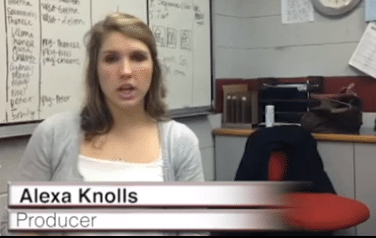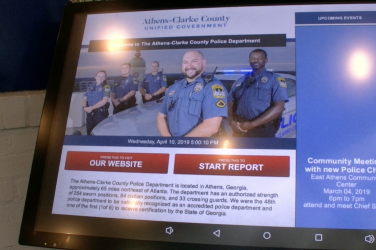Nearly $135 million was spent on lobbying efforts for the United States agribusiness industry in 2018, according to The Center for Responsive Politics.
Less than one percent of that amount—approximately $1.73 million—was spent specifically on poultry lobbying.
Yet, as one of the largest food processing industries in Georgia, the chicken industry continues to be on the rise.
Why It’s Newsworthy: Although comparatively less money is spent on poultry lobbying, the industry continues to grow and is one of the largest agribusiness industries in Georgia and one of the largest employers.
Poultry Lobbying in Georgia
The self-proclaimed poultry capital of the world since 1995 averages 30.4 million pounds of chicken, or 10 million chickens, daily, according to the University of Georgia Poultry Science Department.
In 2018, the industry produces more than $25.5 billion for Georgia’s economy and accounts for 104,000 jobs.
Out of the 780 food processing companies in Georgia, 12 out of the top 15 are poultry industries. Of the 104,000 jobs, 28% are created by the 12 industry leaders.
Pilgrim’s Pride, a poultry processing plant in Athens-Clarke County, is one of the largest employers in the county.
“They’re providing good jobs to a very diverse group of people,” said Mike Giles, president of the Georgia Poultry Federation. “And then when you look at the county, they’re one of the largest ratepayers for water and sewer, which helps the overall system.”
The processing plant is a large consumer of Athens-Clarke County utilities and pays more into the system than the average consumer, Giles said.
The Georgia Poultry Federation
Mike Giles lobbies on behalf of the Georgia Poultry Federation, a 501-C6 non profit trade organization representing the poultry industry in Georgia.
“[The Georgia Poultry Federation] includes poultry growers, poultry processors and allied industry, the companies that provide good services to the poultry industry,” Giles said. “Our main purpose is to do government relations, to represent the poultry industry and state legislature, and when there are, you know, regulatory issues at the state and federal level.”
Giles said the federation monitors all agribusiness legislation. Although it might not be directly related to poultry, it could affect the industry.
“But the main thing we do is we try to be a source of information for legislators. So really, the best way to do that is just to be there every day,” Giles said. “So they know you’re somewhere in the building if they have a question about poultry, they can track you down.”
Brandon Hembree, a lobbyist at Massey Watson and Hembree LLC in Atlanta, sees lobbying as engaging policy makers in a greater conversation about an issue.
“So I see that is kind of like a form of public service or being involved in the discussion around policy,” Hembree said.
Lobbying Defined
Whereas Massey Watson and Hembree LLC are a contractual firm and represent multiple clients, Giles solely represents the poultry industry through the trade organization.
“Being a lobbyist and working for multiple clients, that really appeals to me. But the thing I have found is that because I’m focused on so many things, I can’t be an expert on anything, really,” Hembree said.
The Georgia Poultry Federation is one of the many clients of Massey Watson and Hembree LLC. Its diverse client list includes Comcast Cable Communications, Gwinnett Public Library, Stables, and Bank of America.
“We’re advocates on behalf of our clients down at the Capitol. So we’re doing what they want to do, but they don’t have the ability to do,” Hembree said. “And because of the role we play down at the Capitol, we do have the ability to influence policy that is made.”
Recent Legislation
Last year, the Georgia Poultry Federation asked to introduce a piece of legislation which would clarify a Georgia law regulating ammonia emissions in poultry houses.
“Appropriately, there are requirements to notify the government if you have an emergency. And so when you’re raising animals, and one of those things you have to notify the government about is if you have an emergency release of ammonia, which in some quantities can be harmful,” Giles said.
Ammonia is a natural chemical that is released when animal excrement is breaking down.
“It’s part of nature. And it’s not an emergency release. It’s not dangerous for anybody, but technically speaking, you’re releasing ammonia,” Giles said.
Because ammonia is released every day, Giles and the Georgia Poultry Federation argued it was not an emergency, but rather a burden for farmers to report constantly.
Before its introduction, Giles discussed the significance of the bill to the state agency charged with regulating air quality, the Environmental Protection Division of the Georgia Department of Natural Resources.
There was no opposition.
“This was a case where there could have been controversy. There could have been conflict, but we were able to communicate and work as the bill moved through,” Giles said.
The law was clarified to exclude farm releases from emergency emissions and to mirror the federal law.
A Growing Industry
United States poultry production is expected to rise 2% to a record 19.7 million tons by the end of this year according to the United States Department of Agriculture.
That’s nothing new; poultry production has been steadily rising.
Poultry production saw a 4.5% increase from 2016 to 2018; meanwhile, poultry and egg lobbying spending increased by 8.8% from 2016 to 2018.
Even with lobbying spending increasing at such a rate, it is a fraction of what similar industries spend.
The Georgia Poultry Federation is effectively protecting the industry, Giles said.
It is not only protecting the poultry processing industry, but research programs like the University of Georgia College of Agriculture and the USDA Agricultural Research Service.
And most significantly, lobbying protects approximately 16 million metric tons of chicken that Americans consume annually.
“And then I guess, lastly, everybody has to eat,” Giles said.
Taylor Morain is a senior majoring in journalism.








Show Comments (0)